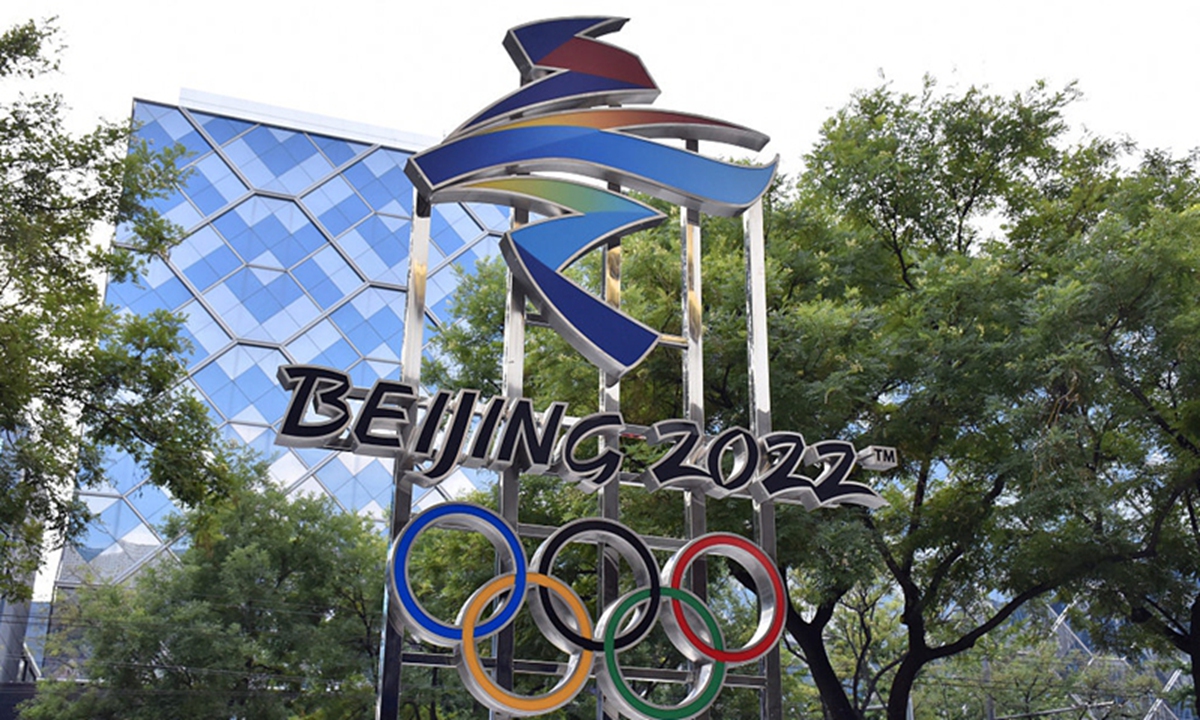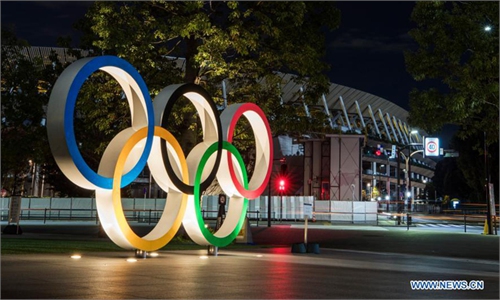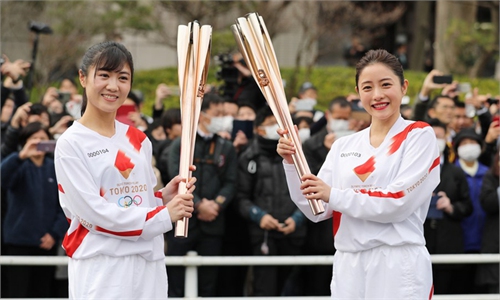
Photo: VCG
When some anti-China US senators called not to boycott the 2022 Beijing Winter Olympics, people shouldn't have the illusion that the US senators took the wrong script. Rather, as wily politicians, they have big calculations.When Republican senator Ted Cruz from Texas, who has been sanctioned by China over his egregious record on Hong Kong affairs, wrote for Fox News, he suggested that American athletes go to Beijing next year proudly and bring home medal after medal with the aim of "not giving China an easy way to run up its medal count." He claimed, "When you decide to hide and not to fight, the bully wins."
Coincidentally or not, Republican senator from Utah Mitt Romney opined in the New York Times that the right way to boycott the Beijing Olympics is not to forbid American athletes from competing, but an economic and diplomatic boycott - American spectators should stay home so they wouldn't make economic contributions to China, and the president should invite Chinese dissidents, religious leaders and ethnic minorities to represent the Americans as a way to embarrass China.
It has been more than a decade since Beijing successfully hosted the 2008 Summer Olympic Games, prior to when the US-led Western countries launched waves of boycott in a bid to thwart China's ascendance in the world. Before the 2008 Games, 106 US congressmen issued a letter calling for boycotting the Olympics because of China's Sudan policy at that time and the relocation of some Beijing residents to make room for the Games. Barack Obama also joined the boycott call and urged then president George W. Bush to boycott the opening ceremony of the Beijing Olympics.
Unfortunately, today's US politicians still hold the same playbook: When a certain occasion comes, they would chant the same slogans and make noise instead of doing something - anything for that matter - meaningful.
It was also in 2008 when the financial crisis swept across the US. China helped pull the US out of it by buying a large amount of US treasuries to stablize the US financial market. Then US treasury secretary Henry Paulson praised China's cooperation in taming the global financial turmoil. Emerging economies in Asia, especially China, have been driving global economic growth ever since, during which the US also benefited from.
Now, China and the US are at a critical juncture of resetting bilateral ties. The upcoming Alaska meeting between senior Chinese and US diplomats is seen as exploratory and believed to set the tone for future China-US relations. The timing requires officials on both sides to play a constructive role.
However, the statements the US senators had made only prove that they have no perspective for the world's most consequential bilateral relationship. They think they are noble in front of China with an edge in the so-called values, but their indulgence in this very nobility makes them look more and more shallow. In their eyes, using every possible means to suppress China is their way to behave. Politicizing social agendas, be they sports or vaccines, has become a typical approach.
The original aspirations for the Olympics were to bridge divergences between nations during wartime and promote world peace. Olympic Movement founder Pierre de Coubertin envisaged the Games leading to a healthier, happier, more peaceful world. But US politicians have been doing just the opposite - they are amplifying differences and conflicts between countries by exploiting the platform of the Olympic Games. Refusing to politicize the Olympics should become the world's mainstream. The Olympics are embraced by the world because of its spirit of being faster, higher and stronger. Nowadays, it is one of the few positive factors in the world, and it should not be ruined by some senseless and aimless US politicians.




